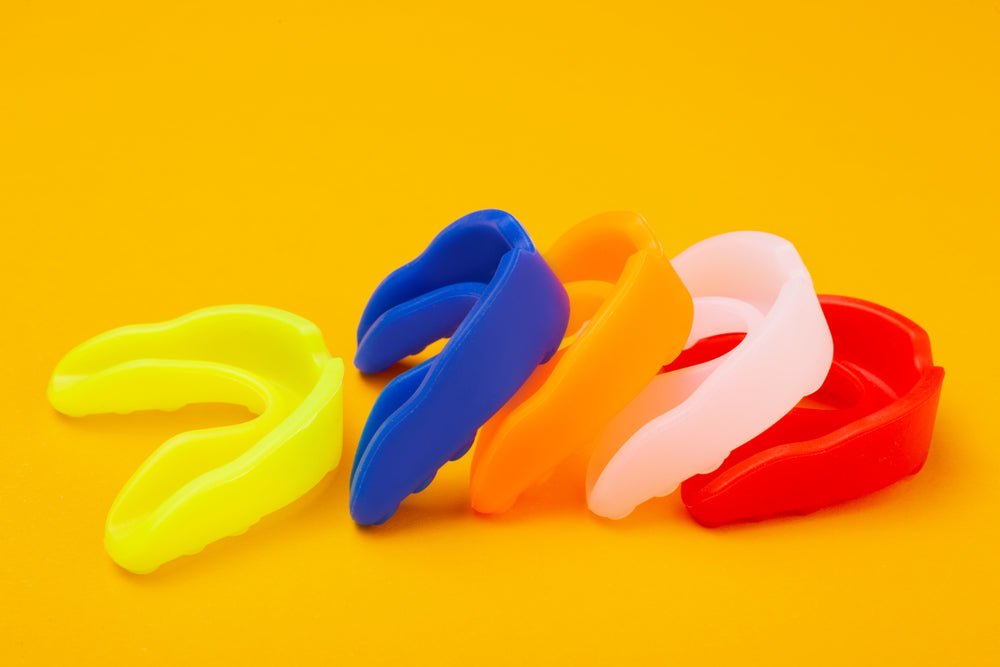Your Cart is Empty
Menu

0
Your Cart is Empty

Your Cart is Empty

November 09, 2021 2 min read
There are numerous areas of our world where colors impact our psyche and how we perceive things, and the realm of sports is no exception. There have been numerous attempts at researching the role of color in sports over the years, and the general consensus is this: Colors have a real impact on several parts of the sporting world, including some situations where they can even directly influence winning and losing -- and this is true in a variety of areas, including mouthguard selection and use.
At Damage Control Mouthguards, we're proud to offer a variety of mouthguard options for various sports and activities, from football mouthguard and lip guard options to hockey, Muay Thai, MMA and numerous other sports. In this two-part blog series, we'll go over what we know about the way various colors impact psychology and other parts of the sports world, plus how your mouthguard selection may play a role here.

Generally speaking, in several realms of the world (not just sports), the color red has become associated with increased energy and enthusiasm. This can be seen in the world of marketing, where companies choose to use red as a primary color because it stands out and has been shown to catch people's attention. Because of this, many athletes have chosen to wear a red mouthguard with these qualities in mind.
In addition, there is some debate about how certain shades may play a role in terms of aggression. For example, shades of red that are closer to orange -- which tend to be darker shades than the typical red colors most people refer to when discussing this topic -- have been shown to influence aggressive behavior, at least on a subconscious level.
Hands down, blue is one of the most popular colors for mouthguards in the sports world. That said, it's also one of the colors that has been studied most extensively when it comes to how it impacts athletes and where it influences a person's psyche.
Blue is a color that can be calming or soothing, or conversely, an intense shade of blue can have a high energy impact -- and this can happen on a subconscious level as well. For example, a shade of blue that is too dark or too close to a black color is going to have a calming effect, which will be noticeable in an athlete's behavior.
Some of the first research on colors in sports centered around the color black, which has been shown to increase intimidation and heighten aggression. So why is it that so many athletes have begun to wear a black mouthguard?
Perhaps it's because they want to show an intimidating demeanor. It's also possible that the color stimulates a person, which has been shown to be particularly true among contact sports athletes who tend to move around more than other types of athletes.
For more on the various colors available to you for a mouthguard and the psychological role they might play, or to learn about any of our custom mouthguard options, speak to the pros at Damage Control Mouthguards today.